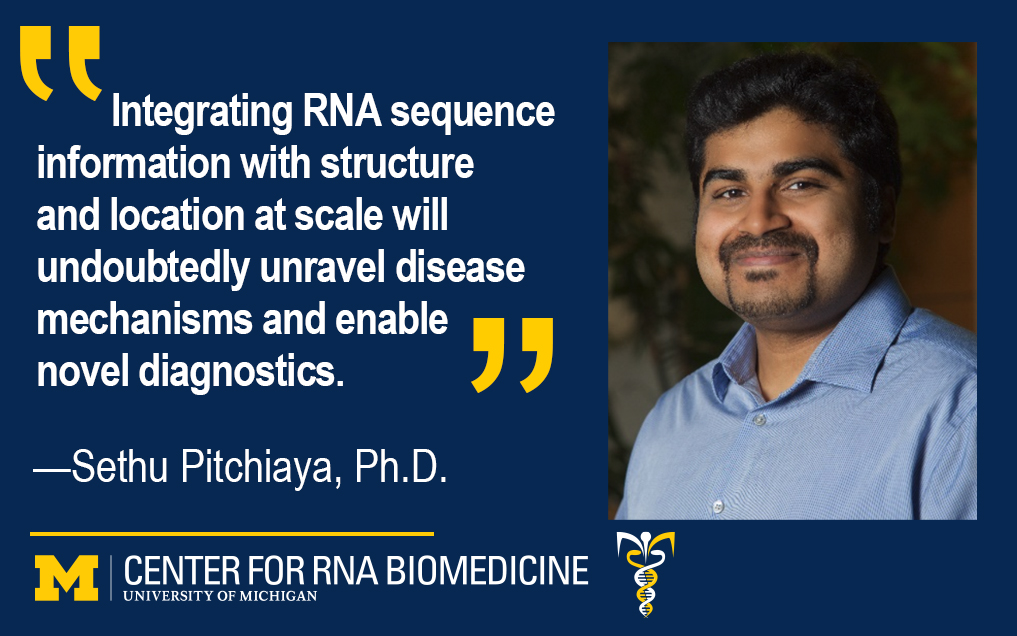RNA Featured Researcher – Sethu Pitchiaya, Urology and Michigan Center for Translational Pathology

Sethu Pitchiaya, Ph.D.
Assistant Professor, Department of Urology
Assistant Professor, Department of Pathology
Medical school
Website: https://www.pathology.med.umich.edu/faculty/sethu
Website: https://sethupitchiaya.org/
Twitter: @SethuPitchiaya
Google scholar: https://scholar.google.com/citations?user=flPaAgUAAAAJ&hl=en
I want to understand the fundamental principles governing RNA(-based) regulation and learn how this regulatory program goes awry in cancer. To do so, I take a spatially-resolved single-cell and single-molecule analysis approach, which mechanistically dissects aberrant gene regulation in cancer across spatial scales (molecular, subcellular, cellular and tissue level). My research program leverages ideas from RNA biochemistry, molecular and cell biology, biophysics and cancer biology, and lies in the cusp of fundamental science, technology development and translational research.
- What is the role of RNA in your research?
RNA takes center stage in my research. A key aspect of my work is to resolve the link between localization, function and fate of RNAs, and understand how these aspects impact cancer cell fate.
- Who/what brought you to science?
My high school teachers and undergraduate research mentors encouraged me to ask questions – a key driving force that brought me to science. In addition, I love solving puzzles.
- What brought you to the University of Michigan?
Graduate school.
- What advice would you give to students who’d like to get more involved in research?
Reach out, ask questions (5Ws+1H), read, be ready for a challenge and have fun.
- Are there any opportunities for students to engage in your projects, currently or in the future?
Absolutely. We are looking for enthusiastic students with interests in RNA, cancer and/or single-cell biology.
-
- What skills would they need?
- Programming skills (MATLAB, python, R and/or other image analysis modules)
-
- What could they expect to learn?
Current, high-throughput single-molecule imaging and spatial single-cell omics.
- What could they expect to learn?
- What profession other than your own would you enjoy, or what is your favorite hobby?
I would enjoy being a cook or a farmer. I don’t have a hobby per se, but I love visiting national parks (25 and counting…).
